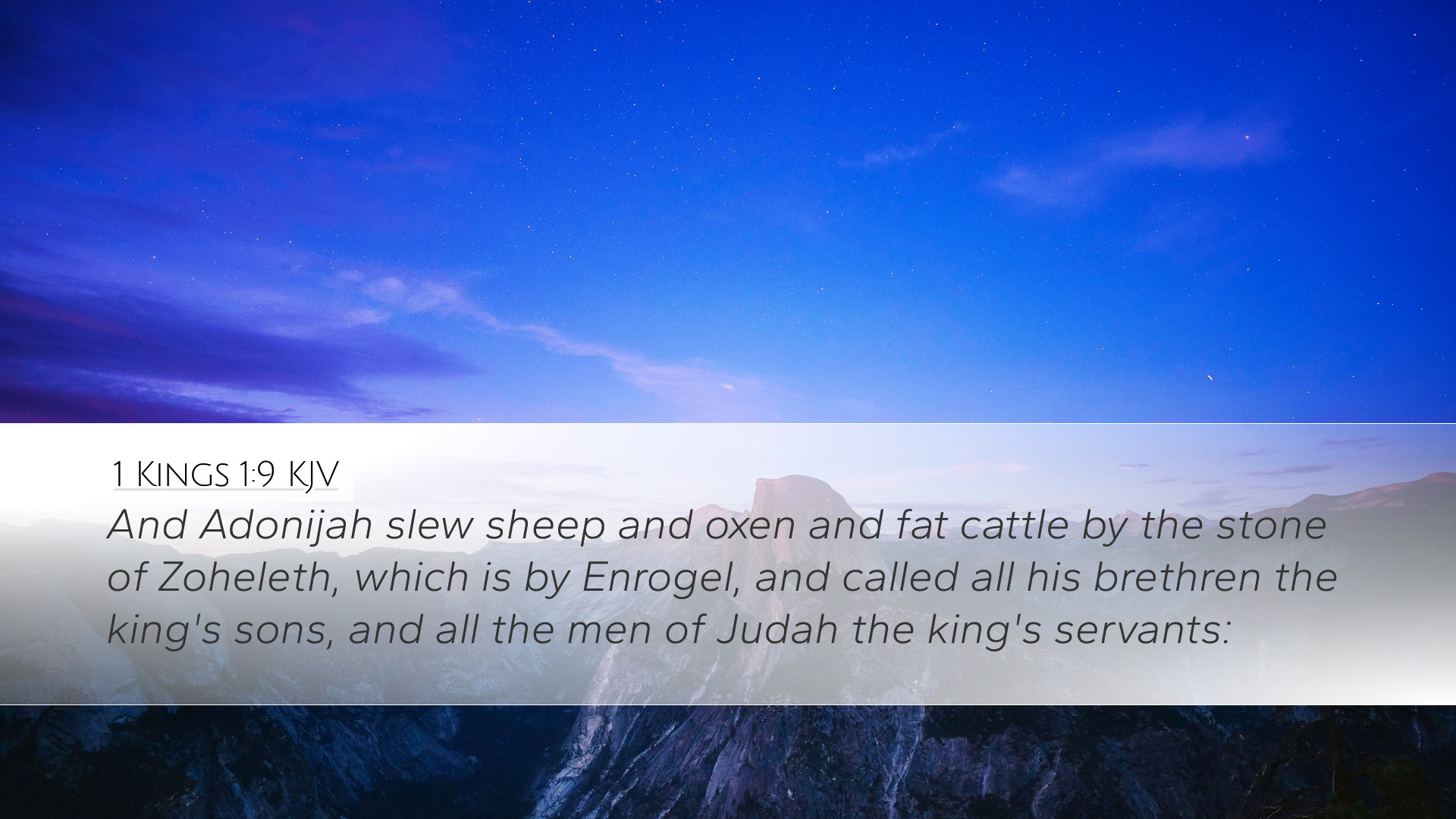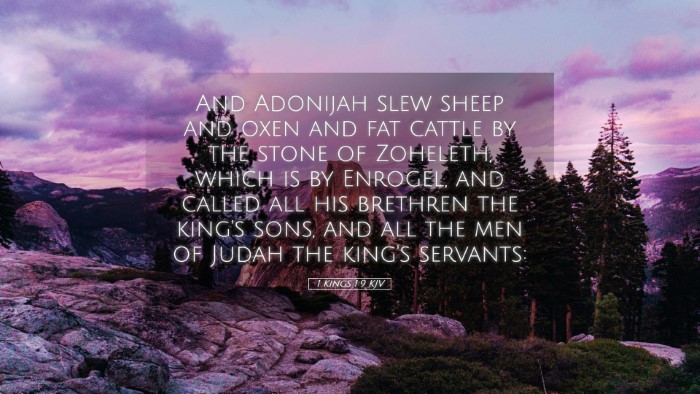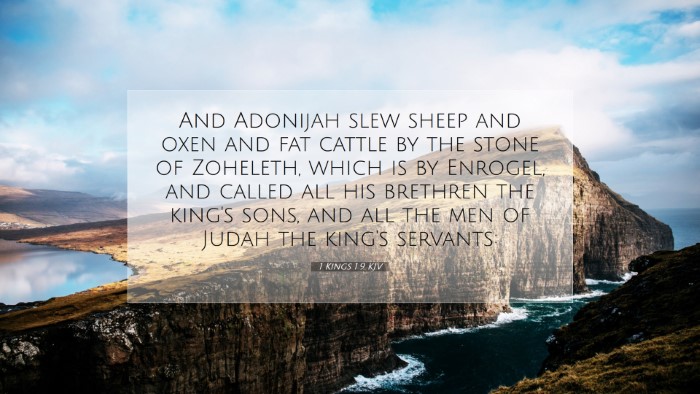Commentary on 1 Kings 1:9
Text of the Verse: “Adonijah sacrificed sheep and oxen and fattened cattle by the stone of Zoheleth, which is beside Enrogel. And he invited all his brothers, the king's sons, and all the royal officials of Judah.”
Introduction
The events surrounding 1 Kings 1:9 mark a crucial moment in the transition of power from King David to his successor. This verse sets the stage for understanding the political intrigue and conflict that arise during the latter days of David's reign. A synthesis of insights from public domain commentaries reveals the underlying themes of ambition, rivalry, and the pursuit of legitimacy.
Adonijah's Ambitious Actions
Matthew Henry remarks on the audacity of Adonijah’s actions. He notes that by orchestrating a lavish sacrifice, Adonijah positions himself as the legitimate heir to the throne, undermining the intentions articulated by David earlier regarding Solomon's succession. Such acts of self-promotion, Henry suggests, reveal Adonijah's character and ambitions.
Albert Barnes elaborates on the symbolism of the sacrifice. He emphasizes that the act of sacrifice was a traditional means of seeking favor, both from God and from the people. By inviting his brothers and royal officials, Adonijah aimed to solidify his power base and garner the allegiance necessary to usurp Solomon’s position, establishing his claim through public displays of wealth and feasting.
The Location of the Sacrifice
Adonijah's choice of location—“the stone of Zoheleth, which is beside Enrogel”—is heavily noted in the commentaries. Adam Clarke provides geographical insights explaining that this area was a significant landmark, often associated with public gatherings. Clarke interprets this as a calculated decision by Adonijah to perform his sacrifices in a place that was likely well-known and accessible, making a statement to the public about his intentions.
Henry also highlights how the choice of location sets a tone for the proceedings; it contrasts sharply with the sacredness of the temple, emphasizing the politically charged atmosphere that Adonijah sought to exploit.
The Impact on David's Royal Family
Within the royal family dynamics, Adonijah's actions were not merely an assertion of power but also a demonstration of familial discord. Barnes points out that inviting “all his brothers” indicates both solidarity and rivalry. While Adonijah seeks to gather support, he simultaneously alienates those who align with Solomon, showcasing the factionalism in David's house. This rift foreshadows the coming conflict.
Clarke adds that the presence of the king's sons at Adonijah's feast indicates the susceptibility of royal heirs to manipulation. It speaks to the broader theme of loyalty and betrayal that runs through the narratives of kingship in Israel.
The Theological Implications
This passage is laden with theological significance. Henry stresses how the unfolding events reflect the sovereignty of God over human affairs. Adonijah might think he has secured his future through cunning and deception, yet unbeknownst to him, God’s purpose and choice—in the person of Solomon—will ultimately prevail. Therefore, this narrative serves as a reminder of God’s providence even amidst human schemes.
Barnes also notes the moral lessons inherent in the text. The precariousness of human ambition, particularly when devoid of divine direction, is evident in Adonijah’s choices. His reliance on charisma and political maneuvering rather than faith and divine endorsement raises critical questions for leaders today.
Summary and Conclusion
1 Kings 1:9 encapsulates a pivotal moment in Israel’s history, spotlighting themes of ambition, legitimacy, and divine sovereignty. Through the lens of multiple commentaries, we see the complexity of human motives, the fragility of familial relationships, and the profound truth that God’s plans cannot be thwarted by human ambitions.
For pastors, students, theologians, and scholars, this passage invites reflection on the nature of leadership, the ethical implications of ambition, and the assurance of God's overarching purpose in the midst of human scheming. As they navigate their roles, they are encouraged to seek God’s guidance, learning from the lessons of Adonijah's rise and the certainty of God’s chosen path.


